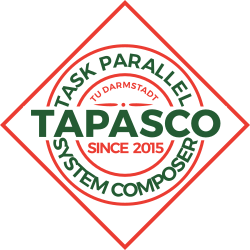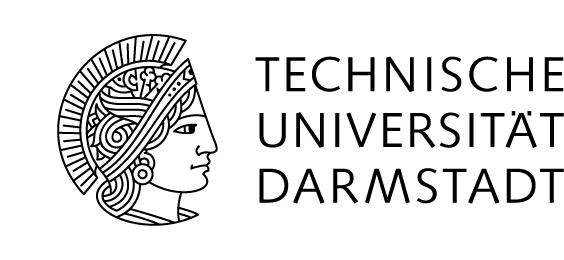Software
Software plays a central role in our daily research and teaching activities, so we have also created a number of successful software projects here at ESA. On this page you can find the software projects that we have released to the public for free use, typically also as open-source software. We hope that the software will be useful to others!
Software Projects
-
Altis-SYCL
Altis-SYCL provides a SYCL/DPC++ implementation of the Altis GPGPU benchmark suite, enabling performance-portable execution on CPUs, NVIDIA/Intel GPUs, and FPGAs. The project includes CPU/GPU-oriented kernels as well as FPGA-optimized variants targeting Intel’s oneAPI flow.
The repository offers CMake-based builds, benchmark configurations, and scripts for running level-2 workloads across different back-ends. It is intended for research on heterogeneous computing, performance portability, and FPGA acceleration using SYCL.
The source code and documentation can be found on the GitHub repository.
-
AutoDock-GPU
AutoDock-GPU is an OpenCL-accelerated version of AutoDock, the widely-used molecular docking software application.
By leveraging the code portability of OpenCL and the embarrassingly parallelism of the AutoDock docking engine, AutoDock-GPU can simulate molecular interactions on both GPUs & CPUs yielding docking predictions significantly faster than the original AutoDock. Moreover, AutoDock-GPU features newly incorporated search methods that increase the quality of predictions in complex real-world cases.
This work is being developed in collaboration with the Center for Computational Structural Biology.
The source code and documentation can be found on the GitHub repository.
-
CGSim
CGSim is a modular C++ library designed to support the development and simulation of compute graphs for heterogeneous systems. It enables graph-based modelling of kernels, scheduling and execution back-ends, and is particularly aimed at workflows for accelerator platforms such as the AMD Versal SoCs. By integrating a graph extractor tool, CGSim can convert graph descriptions into accelerator-toolchain projects as well, thereby bridging simulation and hardware prototyping.
The project is built around modern tooling (CMake ≥ 3.25, Clang ≥ 16, Ninja, Boost) and offers example scripts to run both simulation examples and graph extraction workflows. The library is released under the Apache 2.0 license.
The source code and documentation can be found on the GitHub repository.
-
DAPHNE Benchmark Suite
The Darmstadt Automotive Parallel HeterogeNEous (DAPHNE) Benchmark-Suite contains automotive benchmarks used for the evaluation of heterogeneous, parallel programming models. They are extracted from the Autoware project and should represent parallelizable workloads from the automotive field.
It contains three kernels and six different implementations for each kernel:
- Serial version
- OpenMP version
- OpenMP Offloading version
- CUDA version
- OpenCL version
- OpenCL version using atomics
The benchmark suites also comes with data-sets of different sizes for testing and performance evaluation.
The source code for the benchmark and the data-sets can be downloaded from the Github page.
-
GeMS
GeMS is a customisable, open-source toolkit for generating random, yet constrained, modulo scheduling problems with a known optimal initiation interval. These can then be used to evaluate the behavior of different scheduling algorithms under controlled conditions.
The source code is available on our group’s GitLab.
-
TaPaSCo

An integrated tool flow and library for creating and accessing hardware accelerators on Xilinx FPGAs. Supports Zynq-based boards (such as a zedBoard or the larger ZC706), as well as high-performance PCI Express cards (e.g., Xilinx VC709).
The source-code for the project as well as pre-built packages can be found on the Github page. TaPaSCo is licensed under the permissive LGPL-3.0 license.
-
lectureStudio
A software tool for presenting PDF-based lectures. Integrates a wide spectrum of interactive features (e.g., annotation of slides by many pen-based tools), streaming and recording of audio and video, classroom response (interactive quizzes and messaging system) by smartphone web-browser, and much more.
lectureStudio does not require external servers and can also stream lectures by low-bandwidth connections (e.g. GSM mobile links), if necessary.
For more information and download of lectureStudio, please visit the lectureStudio website.
If you have any questions or encounter any problems, please contact us via e-mail!

